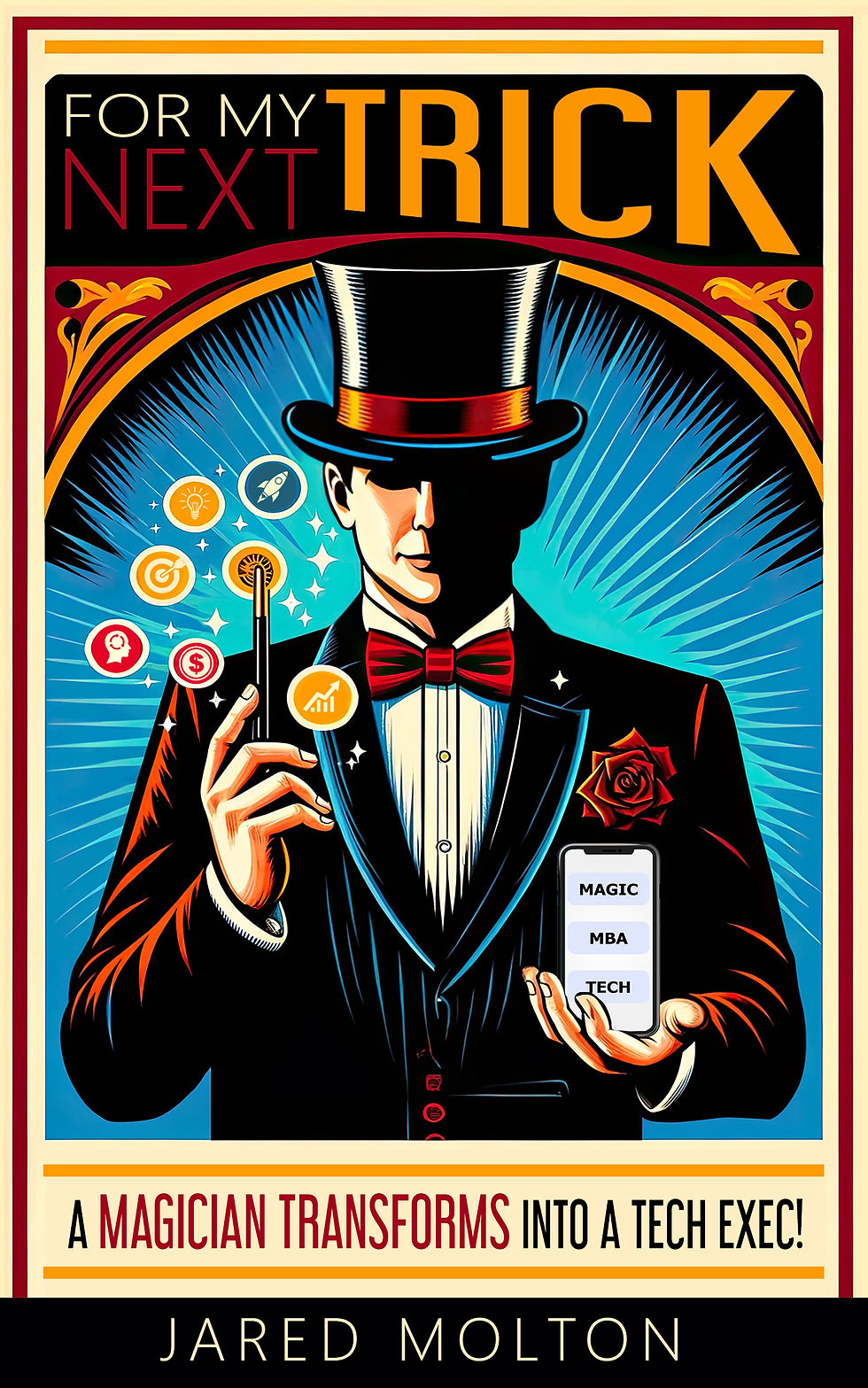Amazon Halo: Reflecting on a Health Product that was Ahead of its Time
- jaredmolton
- Apr 30, 2023
- 3 min read
As published on LinkedIn on 5/1/2023: https://www.linkedin.com/pulse/amazon-halo-reflecting-health-product-ahead-its-time-jared-molton/?trackingId=ZwyOCzIVTJGvstpoZem1xA%3D%3D
Last week I learned that Amazon had decided to end the Amazon Halo program. I was crestfallen to hear this news. I worked on Amazon Halo from 2018 to 2021 and during that time Halo was a huge part of my life. I helped define the Minimum Loveable Product (MLP) and participated in Amazon’s entry in the digital health space with the Halo Band and Halo Membership launch in 2020. At some point, I was the PM lead for every MLP feature, with the exception of Tone. This included Activity, Sleep, Body, Content, the Halo membership, our privacy narrative and supporting features, and the overall app experience on both iOS and Android. While Halo didn’t disrupt the digital health and wearable space as we planned, I still believe that the holistic health concepts that Halo embodied are unique and overall better for measuring and tracking individual healthspan. We innovated around these concepts and I’m proud of the work we did.
Recent longevity research, which folks like Dr. Peter Attia champion (I’ve just finished his book, Outlive), highlights how important good sleep, regular exercise, and mindful eating are in preventing the “four horsemen” of chronic disease (Cardiac Disease, Cancer, Neurodegenerative Disease, Diabetes/Insulin Resistance). Attia also shares how biomarkers like lean body mass are a helpful tool at measuring and understanding progress from behavior changes. For example, he discusses how he has his patients get regular DXA scans. While good sleep and activity is intuitive, deploying strategies which meaningfully impact these behavior-based inputs is not easy. Halo gave our customers these tools with science backed guidance on how to action on these inputs and assess impact. We used the latest health research to inform our product decisions. Our goal was to help our customers achieve a healthier life by meeting them wherever they were on their health journey.
To do this, we needed to simplify the noise. It wasn’t about optimizing for deep sleep, it was about giving yourself an 8-hour sleep opportunity each day. It wasn’t about getting 10K steps each day, it was about obtaining 150 minutes of moderate intensity exercise each week (and adding in resistance training to boot). We didn’t want customers to feel a need to “close their rings” every day. That behavior can cause distress as customers may feel like a failure if they miss a day. For example, I recently spent a night in the hospital. During my stay, my Apple Watch promptly alerted me that I hadn’t closed my rings and my 7-day move streak had ended. That didn't feel good and wasn't helpful. At Halo, we actively fought against this type of false daily urgency. Missing a day was okay, because you could always make up for it tomorrow.
The development of the Body feature was a massive achievement. We developed a Computer Vision based Machine Learning algorithm that detected a customer’s body fat percentage using just their smartphone camera. No need for bioimpedance scales or cumbersome equipment. The resulting output was accurate, with the lowest mean absolute error and standard variation relative to a DXA scan (clinical standard) compared to other methods. That’s the type of innovation that made Amazon, and the Halo team, special. We stopped at nothing to provide accurate and research backed tools to our customers. While the feature introduced privacy concerns (which we proactively mitigated) and carried body dysmorphia baggage, its roots were based in customer obsession. We wanted customers to have easy access to an accurate tool that assessed their body composition. It was a moonshot, but it worked. As medicine and technology evolve towards prevention over treatment, I imagine features like Body will become more mainstream. After using Body and Halo for 3 years, it's hard to live without it as I continue my own personal health journey and don't have easy and accurate access to my body fat percentage.
For all its goodness and innovation, the news last week indicates that we didn’t get it right. That’s okay. There’s a lot we have to be proud of. I’d rather be part of an innovative project that takes risks on behalf of solving customers’ health needs than a more conservative project that follows the crowd, even if the outcome isn’t what I hoped for. I have no doubt that the technology and concepts that Halo introduced to the mainstream health and wellness market will serve as the foundation for future growth in the space and I’m excited to see what comes next.
The Halo team was talented. It included some of the smartest, and most passionate technology leaders I’ve worked with across all development fields (i.e. product, software engineering, science, marketing, etc.). Many of them are now searching for their next project. So if you’re looking for talented people, I recommend you talk to someone who worked on Amazon Halo.






Comments